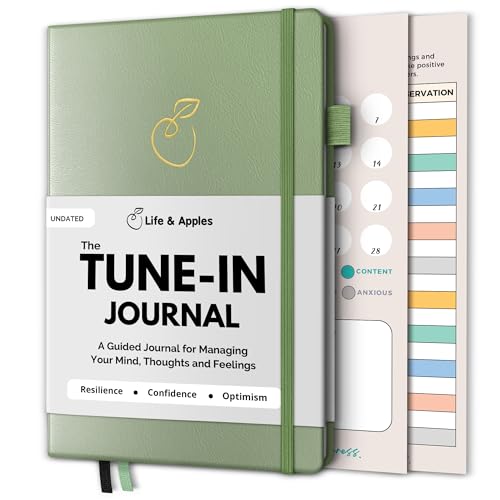The complete form of LPC is a Licensed Professional Counselor. It is the licensure of mental health professionals in many countries. A psychologist is a psychotherapist who provides mental health support for mental health-seeking people. Both of these professionals work for mental health and well-being.
LPCs are mental healthcare providers for mental illness and substance abuse care. They are trained to treat mental, behavioral, and emotional problems and disorders.
They can usually work with groups, families, and individuals. But mainly, LPCs make up a large percentage of the workforce for mental healthcare givers working in schools, universities, hospitals, organizations, agencies, mental healthcare centers, etc.
LPCs are also sometimes actively working with active military personnel, their families, and veterans.
LPCs are mental healthcare givers with doctoral and master’s educational qualifications by clinical definition.
LPC licensure is recognized in the 50 states of the USA and the District of Columbia, Puerto Rico, and Guam; according to the American Counselling Association, at least 120,000 active LPCs are working.
| # | Preview | Product | Rating | Price | |
|---|---|---|---|---|---|
| 1 |

| Psychotherapy of the Disorders of the Self. The Masterson... | 12 Reviews |
$170.00
$80.10 | Buy on Amazon |
| 2 |

| Self-Therapy, 2nd Edition | $24.95 $21.83 | Buy on Amazon | |
| 3 |

| Psychotherapy Without the Self: A Buddhist Perspective | $19.95 $17.46 | Buy on Amazon |
Requirements for Becoming an LPC:
Additional to their schooling, different states in the USA demand other licensure procedures in their conditions. Still, the most common mixture of obtaining the qualification for an LPC is a master’s degree, clinical counseling experience with supervision, and passing a National Exam, such as the National Counselor Examination (NCE) National Clinical Mental Health Counseling Examination (NCMHCE).
Some of the basic requirements and experience criteria are given below (According to the Texas State Requirements for LPCs)-
- All LPCs require a master’s or doctoral degree in counseling or any relevant field.
- They must complete academic coursework in the following subjects- 1) Normal human growth and development. 2) Abnormal human behavior. 3) Appraisal or assessment techniques. 4) Counselling theories. 5) Counselling methods and techniques (individual and group). 6) Research. 7) Lifestyle and career development. 8) Social, cultural, and family issues. 9) Professional orientation theories.
- A supervised practicum experience is needed, primarily counseling; it is also a part of the graduation process. It will need at least 300 hours with a minimum of 100 hours of direct client contact. The Academic Credit for the practicum must appear in the applicant’s transcript.
- After graduation, an applicant must take part and pass the National Counselor Exam and the Texas Jurisprudence Exam (valid only for applicants in Texas, USA). After passing those, the applicants will be granted a temporary license of LPC from the board; with this, they may begin practicing the supervised post-graduation counseling experience or their internship. At least 3000 clock hours and 1500 hours with direct contact with client experience. The applicant should finish the internship experience in at least 18 months.
- They should also adhere to the code of ethics by their state licensure authority.
To learn more about the qualifications of becoming an LPC, visit How to Become an LPC?
| # | Preview | Product | Rating | Price | |
|---|---|---|---|---|---|
| 1 |

| Mental Health Journal for Women: Guided Therapy Journal with... | $26.00 $24.00 | Buy on Amazon | |
| 2 |

| SELFHOOD: A Key to the Recovery of Emotional Wellbeing,... |
$18.18 | Buy on Amazon | |
| 3 |

| What's Our Problem?: A Self-Help Book for Societies | $24.95 $21.83 | Buy on Amazon | |
| 4 |

| Life & Apples Tune-in Journal: Mental Health Journal for... |
$24.99 | Buy on Amazon |
What do LPCs do?
LPCs work in various organizations and can open up their practice if they want, so the scope of their work and duties are wide-ranged. Their specialty in counseling is- school, family, marriage, substance abuse, and mental health.
The overall scopes and duties of an LPC include the following-
- LPCs must hold therapy sessions with their clients to assess their client’s needs based on mental and emotional stability and any other mental condition they may need assistance with. The therapy session that ought to be held can be individual or group, depending on the situation.
- Every client’s problem, situation, story, and need will differ, so the LPCs must develop pre-planned therapy sessions tailored to their needs and expectations individually for all their clients.
- LPCs must also assist clients needing further mental healthcare and counseling attention and guide and educate them. For example, suppose a client’s condition is not helped by therapy and needs further treatment. In that case, the LPC’s job is to advise them to seek a psychologist, a psychiatrist, or another professional in this field.
- LPCs are advised to be sentimental about their client’s needs and requirements as they may need additional therapy sessions with another health professional or in case of attending a court-mandated therapy session.
- LPCs are the safehouse for protecting the client’s legally guarded private matters and clinically noting them down. They may need to collaborate, share, or discuss these matters with other mental healthcare professionals, so it is dutiful to have a clear conception and idea about the client’s condition.
- LPCs must have strong communication skills so their clients can honestly open up to them and share their problems. They also need empathy and understanding with their clients to evaluate their condition accurately.
- They must be able to handle stressful situations with keeping both their professional behavior and empathy in case of treating a client. Keeping their legal obligations as professional healthcare givers in very stressful situations is especially critical.
To know more, read this PDF (published by the American Counselling Association)- Licensed Professional Counsellors.
Who are Psychologists?
A psychologist studies mental processes and human behaviors by observing, interpreting, and recording how people relate to one another and the environment. Although some psychologists are known to work independently with patients and clients, others work with a team of physicians or collaborate with social workers and others to treat illness and promote overall wellness. Psychologists can also work with organizations such as schools, universities, prisons, private clinics, workplaces or sports teams, etc.
In the USA alone, 170,200 psychologists are working at present. As of 2012, the median salary for a psychologist was US $ 69,280.
Psychologists can work in applied or academic settings. Academic psychologists educate higher education students and researchers in many fields, as graduate-level research is integral to academic research.
According to American Psychologists Association (APA), there are two types of psychologists primarily, 1) Professionals. 2) Scholars. The professionals handle patients and clients directly, whereas scholars indulge in research and studies.
Requirements for Becoming a Psychologist:
Psychologists aren’t medical doctors; they are not clinically allowed to prescribe medicine. Instead, they work alongside medical doctors to help clients. After their licensure, they can provide clinical therapy, psychotherapy, counseling, testing, and treatment for some mental illnesses.
The primary steps to becoming a psychologist are given below-
Earn a Bachelor’s Degree
It is recommended to earn a bachelor’s degree in a relevant subject to psychology to become a psychologist, such as social work, psychology, or sociology.
Earn a Master’s or Doctorate in Psychology
Depending on your interest and goals, one can pursue the following degrees, 1) Ph.D.- which is research-oriented. 2) Psy.D. – a reasonable degree for professional psychologists who want to practice. 3) Ed.D.- Doctor of Education. 4) E.Ds.- Education Specialist.
Complete an Internship or a Post-Doctoral Program
This step is required for those who have completed their master’s or doctoral degrees. It is an excellent opportunity for them to work alongside professional psychologists and gain hands-on experience by handling real clients with supervision. According to the US Bureau of Labor Statistics, most states in the USA require an average of 1,500 to 2,000 hours of training and at least 1 to 2 years of supervised professional experience.
Obtain a Psychology License
The licensure requirements vary per state, and it is good to know the individual needs of the state that one is applying for. Various state board information can be found at the Association of State and Provincial Psychology Boards. Once the necessary conditions are met, you must pass the Examination for Professional Practice in Psychology.
Types of Psychologists and What they do:
There can be a wide range of subjects for psychologists to work with. Psychologists can base their careers on various subjects and practice and research that particular subject. Some types of psychologists are mentioned below (according to their fields of research and practice)-
- Aviation Psychologists
- Bio Psychologists
- Clinical Psychologists
- Cognitive Psychologists
- Community Psychologists
- Comparative Psychologists
- Consumer Psychologists
- Counseling Psychologists
- Cross-Cultural Psychologists
- Development Psychologists
- Educational Psychologists
- Engineering Psychologists
- Environment Psychologists
- Forensic Psychologists
- Health Psychologists
- Industrial-Organizational Psychologists
- Military Psychologists
- Personality Psychologists
- School Psychologists
- Social Psychologists
To know more about the various subjects, their work, and their scope, visit- 20 Different Types of Psychologists.
LPC Vs. Psychologist: Which one is better?
Depending on the patient’s need and situation, they must decide which one to consult.
LPCs are specified to counsel individuals, families, and groups. They can diagnose and treat many behavioral disorders with the help of counseling and therapy sessions.
Psychologists are also trained to provide psychotherapy and mental healthcare, but their range of work is more comprehensive, and research and study are mandatory in their field.
But it is to be noted that neither an LPC nor a psychologist can clinically prescribe any client or patient any medication because they aren’t allowed to. So, a patient with a difficult situation that requires specific attention and the help of drugs can refrain from seeing both of them.
On the other hand, if someone’s behavioral and emotional problems, it is better to see an LPC than a psychologist. Moreover, if any person’s behavior causes mental distress, any specific issues are good to consult a psychologist.
Above all, it is necessary to understand the depth of one’s problem and the origin of deciding whether to consult an LPC or a psychologist before taking action.
You May Also Like the following:
- How to Become a Marriage and Family Therapist (LMFT)?
- LPCC VS MFT: Which One is Better?
- Psychologist vs. Therapist
- Best Gifts for Therapists | 12 Unique Ideas
- Best 17 Unique Ideas for Psychology Majors
- How to manipulate people’s minds
Last update on 2024-04-18 / Affiliate links / Images from Amazon Product Advertising API


